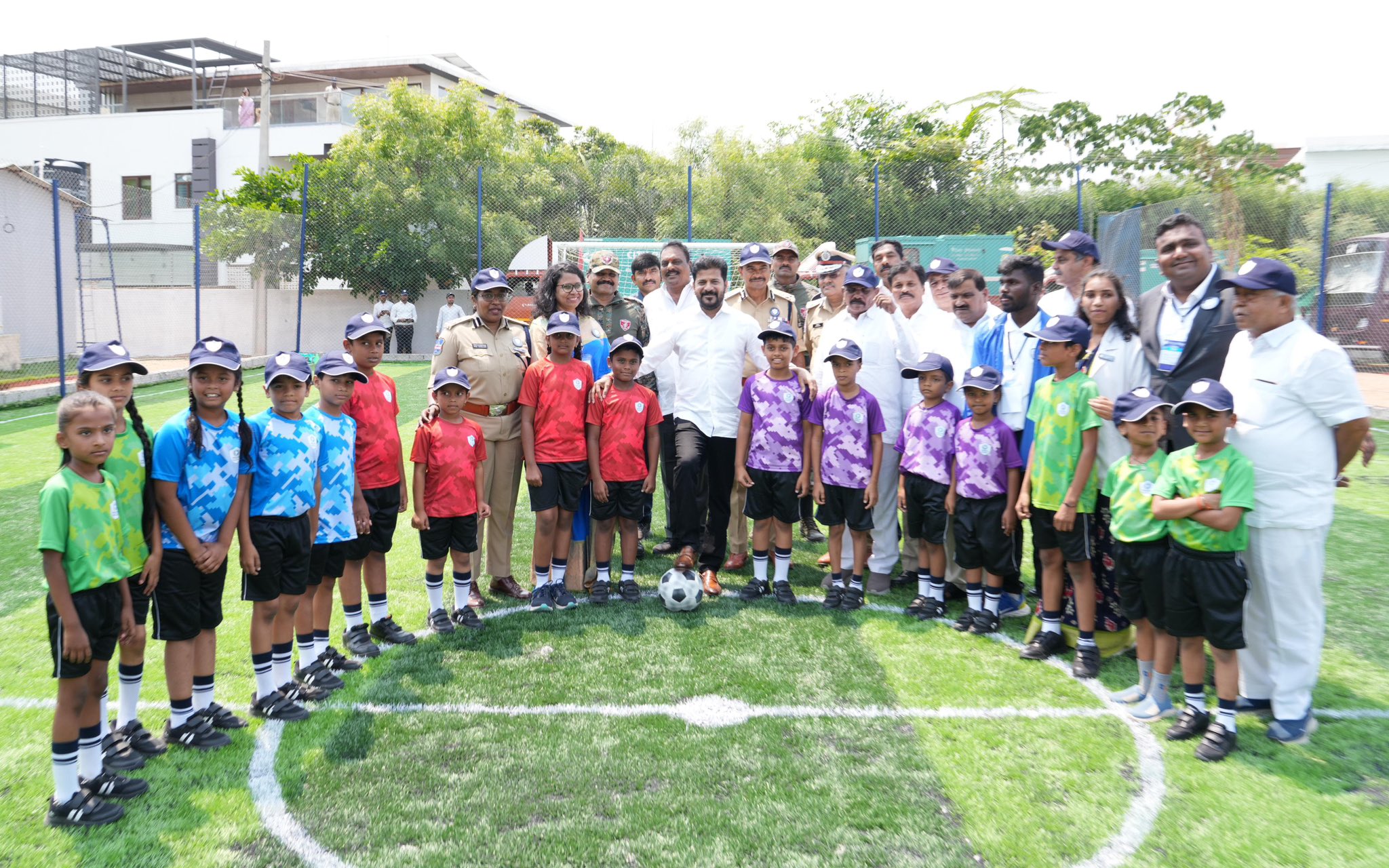To bridge the enrolment gap between private and government schools, Revanth Reddy announced free transportation for underprivileged children, noting private schools serve 30 lakh students, while government schools serve only 18.5 lakh
Published Apr 10, 2025 | 7:51 PM ⚊ Updated Apr 10, 2025 | 7:51 PM

Telangana to launch pre-schools in government schools (@revanth_anumula on X)
Synopsis: Telangana will soon introduce nursery, LKG, and UKG classes in government schools, Chief Minister A Revanth Reddy announced on 10 April. Aimed at strengthening early childhood education, the move addresses gaps in the state’s primary education policy. The announcement came during the inauguration of the Young India Police School, with the preschool model expected to follow widely accepted early learning standards
The government schools in Telangana will soon offer nursery, Lower Kindergarten (LKG), and Upper Kindergarten (UKG) classes before students enter Class 1, Chief Minister A Revanth Reddy announced on Thursday, 10 April.
The announcement was made during the inauguration of the Young India Police School (YIPS), a flagship project whose foundation stone was laid last year at Manchirevula in Hyderabad.
Although the Chief Minister did not delve into the finer details of the preschool model, it is understood that it would follow standard structures already in place elsewhere. Nursery will be the first level of formal education, catering to children around the age of three, and will focus on foundational learning through play, social interaction, and motor skill development.
LKG, designed for four-year-old children, will introduce more structured learning, including the basics of letters, numbers, and simple concepts, all within a play-based learning environment. UKG, for children around five years of age, will act as a bridge to primary education, focusing on early reading, writing, and arithmetic to prepare students for Class 1.
The Chief Minister said the decision to introduce preschool in government schools was prompted by ambiguities in the state’s primary education policy.
“Education, employment, and healthcare are the top priorities of this people’s government. I firmly believe that the future of the nation lies in our classrooms. Only when we strengthen classrooms can we ensure a bright future for the country. The power given to us by the people must benefit them and future generations. ‘Young India’ is our brand, and the government is working relentlessly to make it a reality.”
He recalled the formation of an education commission to address policy gaps in the state’s foundational education system. The commission, comprised of education experts, recommended introducing a formal preschool system in government schools.
To ensure accessibility for children from underprivileged backgrounds, the government will also provide free transportation, akin to services offered by private schools, he added.
Revanth Reddy stressed the need for removal of the disparity between enrolment in private and government schools: while 11,500 private schools have 30 lakh students, the state’s 29,000 government schools serve only 18.5 lakh students.
“The government conducted a review to understand why even highly qualified faculty, were unable to attract students to public schools,” he said. “We identified key shortcomings, which we now aim to address.”
He pointed out that government schools only admit children aged five and above, whereas private institutions offer a continuous preschool system beginning with nursery. As a result, most parents opt for private schooling early on, and children rarely transition to government schools for Class 1.
Speaking about the newly inaugurated Young India Police School, the chief minister described it as a significant initiative for police personnel who often struggle to balance their demanding duties with their families’ educational needs. “This institution is a vital support system for every officer in khaki, from home guards to the DGP,” he said.
He also mentioned the establishment of the Young India Skills University (YISU) in partnership with leading educational institutions. Along with YISU, the government has launched the Young India Sports University and the Young India Sports Academy.
“To support higher education, we introduced a degree program at the Skills University. The first batch achieved 100 percent placement,” he said. In addition, the government has launched Young India Integrated Residential Schools across 58 assembly constituencies to serve students from SC, ST, BC, and minority communities.
(Edited by Ananya Rao)
